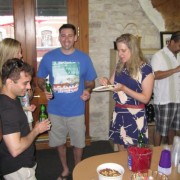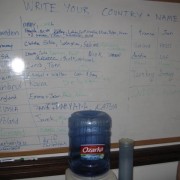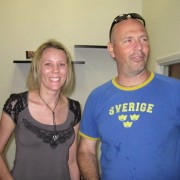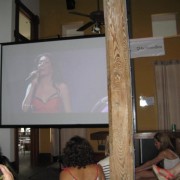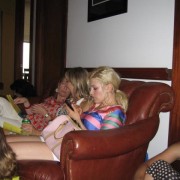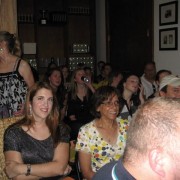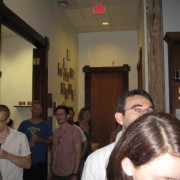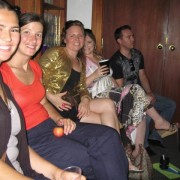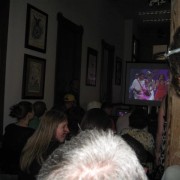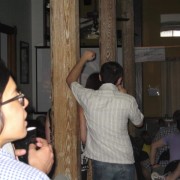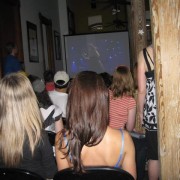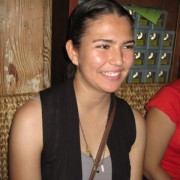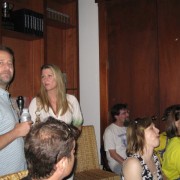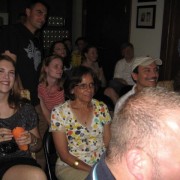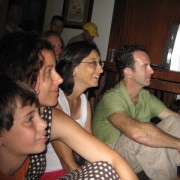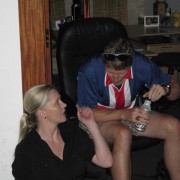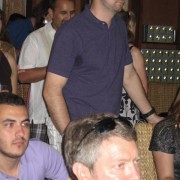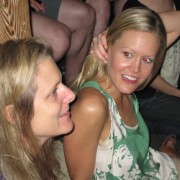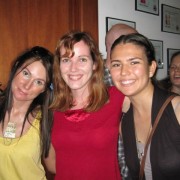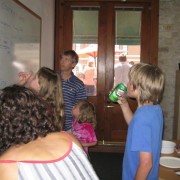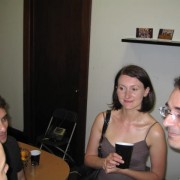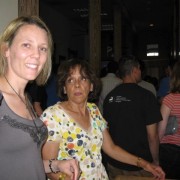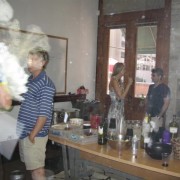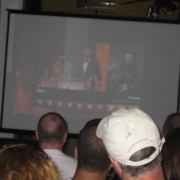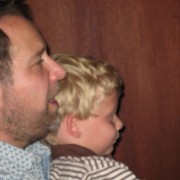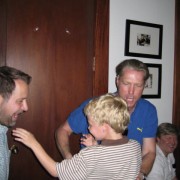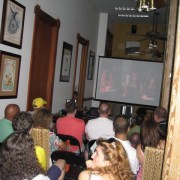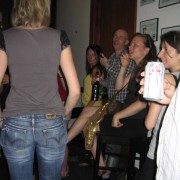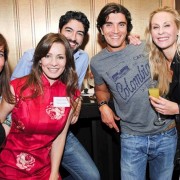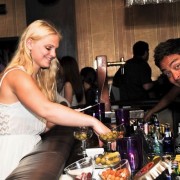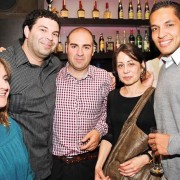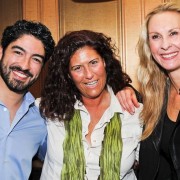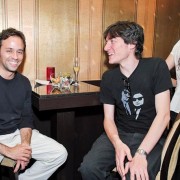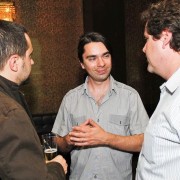Home Away from Home
So you landed the expat assignment of your dreams! You still cannot believe you made the cut, passed all those crazy interviews. You have packed your luggage, cleared your home. Everyone tells you “Do you know how many people would kill for that opportunity?”. You possess the exact skill set is that this foreign company – your new employer – wanted to get. Possibly you are even considered a guru – a wizard in your own field. You have arrived at New York City; so now what? On your first day of work reality sinks in. Is this what you really signed up for? Your new colleagues ask, “why did you leave Finland to come to New York?”
There are multiple challenges most professionals encounter in pursuit of an overseas assignment. I am not trying to downplay the uphill battle of landing one of these overseas dream positions, especially given the current less than desirable economy (2012) in Europe and the USA. There are limited opportunities, protected job markets, and an increase in the number of foreign nationals receiving advanced degrees and work experience outside their home country. All of these factors make obtaining any expat assignment more difficult for many of you. You can hire local talent who undoubtedly understand local and regional markets better than you do – so why recruit overseas?
I was one of those fortunate few. Most people work throughout their career to obtain an overseas assignment. I didn’t, in fact my job in Finland was an excellent one. My choice was kind of a fluke, because my future employer was a client of ours in Finland. I never officially applied for a job, never really interviewed for it but in a few months after meeting my future boss I found myself working in Manhattan instead of travelling around the world for one year. I had planned taking a sabbatical year off to travel around the world. The challenge of obtaining an overseas assignment is worthy of many stories but I would not be able to write too much about that. However, I will share my own experience and pass along some advice for once you set foot on foreign soil.
You may think the toughest obstacles are behind you once you got the dream job…think again. After recovering from the jetlag, you will face a whole new set of challenges. And what are those – well, they include legal, cultural, social, and, in some cases, language barriers. I have listed below some suggestions to ease you into your new ‘home away from home”, and make the experience something worthwhile. My first experience was very strange since I had a bit of a problem suddenly with my back and I needed to go to an emergency room. At that time all those racial riots were going on in Los Angeles and that same night they predicted the Hell’s Kitchen area in Manhattan was a target. I took the risk and went anyway. No riot. Though I must admit I felt like rioting when I got the cold shoulder treatment at the hospital. You do not want to be a foreigner, have no American health insurance card etc. The first question is how will you pay for this, you could die in front of them before they get all sorted out. And a word of advice, NEVER ever go to the emergency room unless it is the absolute last resource. Ever. It is super expensive and started my planned one-year with thousands of dollars of expense on my credit card.
The Red Tape – Prepare for the bureaucracy
The bureaucracy can be one of the toughest obstacles you face. It will test your emotional and physical limits. If you have a hiring company, they should address issues such as foreign work quotas, visas, permits to stay, social-security-number equivalents, currency of your salary, taxes, housing and relocation assistance, health and other benefits, etc. before the job offer is made. You must understand who, what, where, and when of the above. By the way, be prepared for some hiccups along the way even when all of these issues are spelled out. In my case, it took only four months and no visits to any consulate to get my visa but that is very rare for an outside hire. I have heard from many other expats that they felt their overseas assignment would end in the waiting room of their local consulate. Very simple tasks of obtaining a driver’s license or opening a checking account can cause bad headaches. You may need a local driver’s license within a certain time period. I had never used a check in my life, I still don’t get why American use checks! That is an invitation to fraud if you ask me. Finland’s banking system was much more advanced than the American in the 1990s. I could not believe I was asked “do I prefer a direct deposit or a check?” First I did not even understand what does that mean. And was I ever happy I did not have any kids to deal with after I learned how the schools worked in Manhattan. What a nightmare! I also was very lucky during my first year because I had worked for an insurance company in Finland as an executive and they kindly provided a wonderful, affordable health insurance for me for one year. Thank You for that! I really, really, really missed the Finnish health care. You do not want to be poor and sick in the American Dream, I feel very sorry for many single parents in this country and any unemployed people.
Do you homework – No question is a stupid question
Do your homework before you accept any the assignment. Prepare a list of questions for your employer. No question is a stupid question. For example, Chase would not give an American credit card even if I transferred tens of thousands of dollars to my New York checking account. Why? Because I did not have an American credit history and the Finnish credit history did not count. Another bank did not mind. Consult other expats, alumni, colleagues, and family members living in the country where you will be working. There are plenty of online resources you can consult. Every country is different so be prepared to spend some time on the due diligence. Do not expect one resource to have all the answers to your questions. Patience is a virtue for any expat.
Hone your observation skills – the trust of your colleagues must be earned
You are the best change management consultant around. However, if you don’t understand the internal rules or politics, all your know-how and previous success stories will be irrelevant. At my new employer in Manhattan it was a lot of internal politics. No to mention a lot of internal problems with corporate culture as two big firms had just merged together. Nobody cared about my past success, especially as I come from some small country called Finland. If you have any “soft” management skills they will come in handy. Assess the cultural norms of your new workplace before charging too much ahead. Keep an open mind because what may have been the best means of achieving success in the past, may not apply at all in your new work environment. You MUST learn how to navigate your new office terrain before you accomplish anything. I can’t emphasize you how important this point is. When you fail to recognize the flow of power and for example question a co-worker in front of others – even when done in a professional manner, it may take very long time to repair a damaged relationship and regain the trust of a colleague. Do not put your foot in your mouth. If there is an issue that you feel very strongly about, you should think first and take a smart approach such as to bring up your concerns in a one-on-one environment IF that is the right cultural approach. The Finnish work environment is much more informal than a partnership for a huge firm in Manhattan. A lof of egos and a lot of competition in any partnership – as well as internal alliances.
You must ask yourself the following: Is your new boss hands-off or a micromanager? Does the local culture permit you to question colleagues or senior management in a group environment? Are your colleagues/superiors competent from a functional and an industry perspective? Have you joined the ranks of a highly masculine environment? For females, this will change how you approach the workplace and colleagues. If you get a good grip on the office environment, the next step is to adjust your work style. Once you understand the do’s and don’ts of your new office, you can set a plan in motion to earn the trust of co-workers and superiors. This will be no easy task. There will be those who will always be suspicious of your motives – you are the outsider. You must show how you add value to the firm without looking for the praise of how great you are. Sometimes it means sharing or passing off credit to a colleague or superior to show that you truly want to be part of the team. Watch out for those who see you as a free meal ticket. I ran into quite a few of those over the years.
Understand the business culture in each country is different
Find out the business culture of your new country in which you accepted your expat assignment. You can conduct first-hand and second-hand research. You should talk to former and current employees and better yet, from the expat community. Nowadays you can see what you can find out from the company’s website and press coverage. For example, if you read more than once that the company is delayed on their product launches; conduct your own market intelligence. Maybe their problem is an extremely bureaucratic system. I have seen a few articles recommending to start is with Geert Hofstede, www.geert-hofstede.com. Professor Hofstede conducted one of the most comprehensive studies of how values affect workplace cultures. He based his research on the analysis of IBM employees from more than 70 countries. Hofstede uses five cultural dimensions to compare workplace behavior. If you use his Hofstede’s model one, you can compare the cultural norms of two different countries. If we compare the Uncertainty Avoidance Index (UAI) for Italy and the United States, you can see that Italy has a low tolerance for uncertainty and ambiguity in the workplace. Therefore, if you are moving from the United States to Italy, the environment will be rule-intensive and more bureaucratic. This link shows a comparison between Italy and the United States (http://geert-hofstede.com/countries.html?culture1=95&culture2=48)
Network outside of the office
Even when you enjoy your colleagues and workplace, external outlets are a MUST. I cannot stress how crucial this is. These outlets can come in the form of professional associations, alumni clubs, leisure activities, or volunteering; anything that can help you develop a social network outside work. In my case I worked with multinational department and in a few years started really craving more Europeans and more contacts outside work which eventually lead into starting EuroCircle.com in the 1990s. Well, I also worked in an international department for an American firm and for some reason I ended up doing a lot of stuff that our HR should have been doing but they didn’t. Therefore, many times I ended up trying to make the ever floating expats feel more comfortable and fit in,
Find out good groups and contacts in your new country before your arrival
Before you leave you own country put together a list of groups and contacts such as Finnish, Scandinavians and Nordic groups in New York in my case. In addition, look for local or regional social/professional networking groups. Nowadays this is quite easy compared to what it was before internet took over our lives. If you can establish a well-rounded network including friends from the local and expat community, it will give you necessary balance. The “locals” will provide the insight that only native-born citizens can, while your expat network can offer a shoulder for support and advice for challenging issues that only foreigners experience.
I can still recall my few American friends venting to me about stupid Finnish customs when I lived in Finland because I could relate to that…and yes, every country has good and bad parts. And the important part for them was that I was OK about them venting, many people are not. Some of us just do not know how to laugh at themselves. Fair warning that many Americans have never lived abroad – or even travelled abroad. It is not a good idea to discuss the lack of social security, terrible school system, unequal rights etc with anyone at a business related event if you do not know their situation. You may be discussing with someone who is very religious, very right wing (since left wing is not really much likely in the USA), very conservative, never left the USA and sees no reason why he should either. He reviews all Europeans as liberal, socialist who try to destroy the American Dream. I made that mistake more than few times! I also found out via networking some wonderful American friends who had more broader outlook and in some cases were super well-educated and read. To the point that my sister was super impressed with a friend of mine who lectured to her about Finnish history! She said that he was by far the most educated American she has met – and knew more about Finland than she did.
Avoid cultural traps
Try to stay away from comparing your new host country or office to that of your last one. It is perfectly natural to refer back to what you know best. However, the person who starts or ends any conversation with a statement like “where I’m from this is how we do it,” will be easily labeled not only a complainer but also someone who can’t adapt. You don’t want to be there.
Approach your work from the perspective of the local culture
Make a note to stop yourself (easier said than done) if you catch yourself going down this path. Try to approach your work from the perspective of the local culture. What was logical in the past could well be illogical in your new work environment. Sometimes you need new means to achieve your desired end result. These other sources outside of the obvious chain of command may get you support and buy-in. Sometimes even a nice coffee break with influential co-workers/superiors may be the way to get your project up and running. You do not want to be seen as unhappy and unable to grasp the point that you are no longer at home. You cannot do things your way is likely to drive a wedge between you and your colleagues if you keep reacting to the differences. Your current situation will remain different from your last one and must be treated as such. Naturally you can apply your previous skills and past experiences to your new role. However, how you choose to implement your ideas will greatly impact the likelihood of your success in your new country.
Learn the language
If any way possible please learn the language and the local culture. The business communications (verbal and written) will be very different from basic language skills that you get by with at the market or in leisure travel. You will have to work on your language skills regularly if you are not a native speaker. You probably should be prepared to dedicate time to this daunting task. It IS critical to your survival. The fact is that the more you learn about your new home, the better you will be able to fit into your new environment. Understanding the history, current events and politics of your new country will help you to assimilate. Following the news and the major events are important for everyday conversation.
Be informed about the local stuff
Read the local newpapers, watch the TV news, take language lessons, and again – get advice from other expats. You could end up on the periphery of a community if you lack the ability to communicate in the local language. Get involved in after-work social groups, join a gym, enroll in an evening or weekend course, go to the Hamptons for the summer, skiing in the winter etc. — any extracurricular activity which can serve as both a personal outlet and means by which to improve your cultural knowledge and language skills.
Look for local resources that cater to expat communities and help integrate foreigners into the local community.
Your life abroad presents many uphill challenges as we all know. However, the potential return can be a priceless experience. At best your expat experience will deliver both professional and personal rewards. You give up a lot – and you may gain even more.
We would love to hear your experiences. Please post them on the forums.
Kaisa




